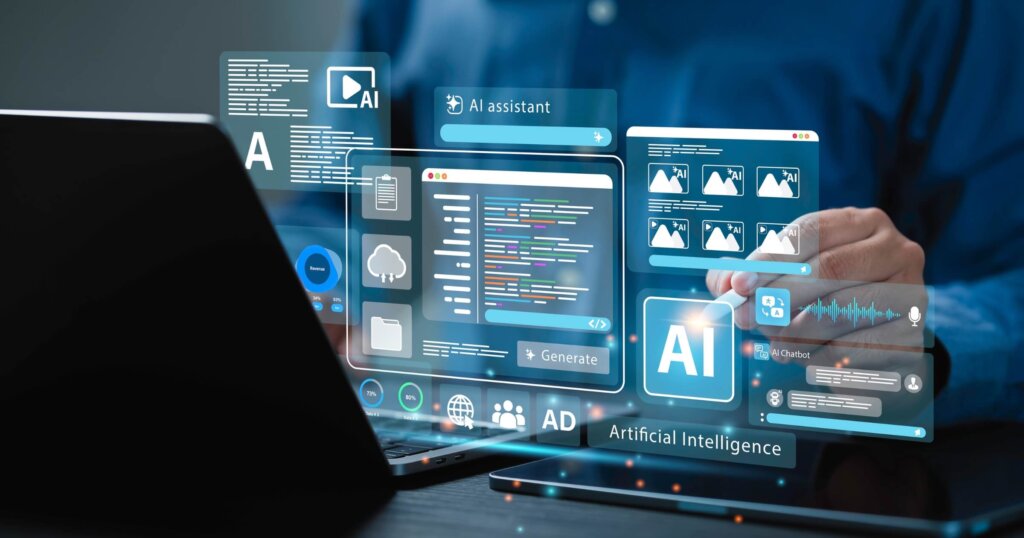Oracle is making a bold move into agentic AI, a new breed of artificial intelligence that’s set to reshape how technology interacts with data and processes. Unlike traditional AI models that passively respond to commands, agentic AI systems actively perform tasks, adapt to changing conditions, and make decisions based on ongoing feedback. While Agentic AI is still in its infancy stages, the potential of this technology to fully automate complicated tasks is truly groundbreaking.
What is agentic AI?
Agentic AI refers to systems that operate with a higher level of autonomy than generative AI, taking actions based on observed patterns and goals. These systems complete tasks without human intervention and adjust their strategies and workflows as new data comes in. They can anticipate needs, execute tasks, and refine outcomes as conditions change. Oracle is pushing hard to create Agentic AI for the construction industry, with executive leaders signaling a shift toward integrating agentic AI across its cloud and enterprise solutions.
Why does it matter in construction?
Construction projects generate mountains of data—from site conditions and materials management to workforce schedules and safety protocols. Agentic AI has the power to turn that data into actionable decisions without requiring constant human intervention. These systems can analyze information in real-time, detect potential issues before they escalate, and optimize workflows on the fly.

How agentic AI will be used in construction
Oracle’s move into agentic AI opens up exciting possibilities across multiple areas of construction. Here’s where these systems can make a real impact:
- Project management and scheduling: AI-powered systems can dynamically adjust project schedules, considering variables like weather, supply chain delays, or labor shortages. If a delay occurs, the system can automatically reassign tasks and resources, keeping timelines intact. By learning from past projects, the AI can suggest more efficient ways to organize future work.
- Safety monitoring and compliance: Keeping workers safe is a top priority on any job site. Agentic AI can continuously analyze site data to identify hazards and notify supervisors before problems occur. These systems can track compliance with safety protocols, ensuring that workers follow regulations and reducing the likelihood of accidents.
- Supply chain optimization: Construction projects rely on a steady flow of materials arriving on time and in the right quantities. Agentic AI can monitor supply chains in real-time, predict delays, and suggest alternative suppliers if needed. This level of oversight helps prevent costly downtime and keeps construction moving forward.
- Quality control and defect detection: AI systems can inspect materials and construction processes to ensure quality standards are met. By analyzing data from sensors, cameras, and other sources, these systems can detect defects or deviations from specifications early, allowing corrections before they become costly issues.
- Energy efficiency and smart building management: After construction is complete, agentic AI can optimize building performance by monitoring energy usage, adjusting HVAC systems, and predicting maintenance needs. This proactive approach keeps operating costs down and extends the life of building systems.
Oracle’s all-in AI strategy
Oracle’s push toward agentic AI focuses on integrating these Agentic Ai systems into its cloud solutions to help construction firms work smarter and faster. Oracle already provides cloud-based tools that manage project lifecycles, and adding agentic AI will take these platforms to the next level. With AI agents capable of independently managing tasks and responding to changing project conditions, construction teams will be able to focus on high-level decision-making while leaving routine adjustments to Ai Agents.
Oracle’s focus on AI agents aligns with the growing industry demand for smarter, more adaptive solutions. As construction firms adopt AI-powered platforms, they gain a competitive edge by increasing efficiency. While the first round of Agentic Ai solutions will likely come with some major drawbacks and problems, once refined, the possibilities are endless.
Future potential in construction tech
The construction industry is just scratching the surface of what agentic AI can do. Oracle’s investment in this space signals a major shift toward smarter, more resilient construction processes. Future applications could include autonomous equipment that adjusts its operations based on site conditions, AI systems that generate optimized building designs, and virtual assistants that provide real-time updates to project managers. How long this will take to develop remains largely unknown, but expect to see some potential launches of Agentic AI products in construction coming in late 2025 or early 2026.
To stay ahead in the construction industry, keeping up with these advancements is essential. Subscribe to Under the Hard Hat to get the latest updates on AI trends, construction technology, and project management tools delivered right to your inbox.



1 comment